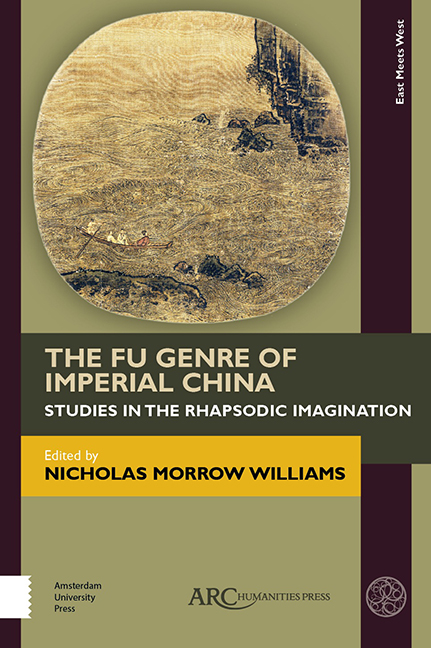9 - A New Discourse on “Lament for the South” in the Fu of the Ming– Qing Transition
Published online by Cambridge University Press: 20 November 2020
Summary
THE STUDY OF classical Chinese literature traditionally follows the principle of understanding an individual in context of the age (in Chinese, zhiren lunshi 知人論世). In accordance with this principle, we have tended to read fu of the Ming-Qing transition era in relation to the problem of authorial identity. Each scholar-official was forced to decide whether to be a loyal servant of the Ming or surrender to the Manchus, choosing between the nobility of martyrdom or a compromised survival. Yet regardless of whether one chooses the perspective of autobiography or of history, any kind of interpretation must establish its own signposts and present itself by means of so many footnotes, citations, and analyses, all defining the subjectivity of the author as embedded in the period context. It is often precisely while perusing these footnotes and annotations to the text, even more than the text itself, that the reader finds herself gradually perceiving a distinctive image, albeit an incomplete one, of both the author and the era.
Just as writing is nothing else but the system constructed by all texts, reading and interpretation too exist in this realm accumulated by past ages, providing the opportunity for comparison and observation; the author and reader can be said to rely on this to understand one another concretely. With regard to the common phenomena of imitation and allusion, it is precisely through recognition of some feeling stirred by the borrowing and understanding of past experience that “both imitation and allusion reveal throughout that the classical author is trying to bring the temporal past into the present, to create a synchronicity between the past and the writer’s present, and also to call into being a new collective consciousness on the plane of culture.” That writing can become understood in different eras may be precisely due to the pre-understanding already possessed by the interpreter, allowing her to read the author and work in a way that suits these expectations. Through repeated acts of writing and interpretation, each new composition is not an original and spontaneous one, but for the writer is rather a way of creating a simultaneous order together with previous literary works, while the interpreter plays the intermediary role of introducing the work into the long and continuous arc of tradition.
- Type
- Chapter
- Information
- The Fu Genre of Imperial ChinaStudies in the Rhapsodic Imagination, pp. 187 - 222Publisher: Amsterdam University PressPrint publication year: 2019



